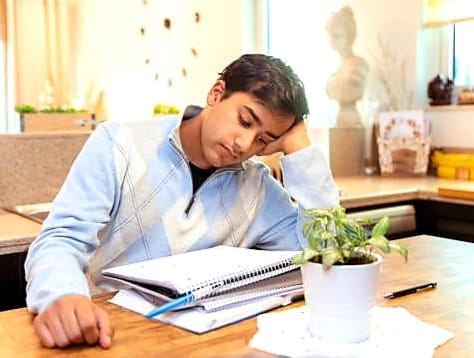Edition: July 22nd, 2021
Curated by the Knowledge Team of ICS Career GPS

- Excerpts from article by Kavita Sahay Kerawalla, published by the India Today Web Desk
The COVID-19 pandemic has led to an exacerbated outbreak of emotional and behavioural problems among individuals across ages.
Children and young adults are experiencing worry and fear.
It is normal to feel anxious when one is feeling upset or facing difficulties. However, with mental and physical health being at an all-time low, anxiety and panic attacks are also being experienced.
Young professionals dealing with anxiety
With little or no physical contact, lack of non-verbal cues, and a lack of instant gratification and recognition, working professionals may experience challenges in communicating and arriving at decisions.
With businesses across sectors getting affected adversely, there is a sense of job insecurity, instability and financial crisis. Families have faced emotional upheaval leading to anxiety attacks.
Challenges faced by teenagers
Teenagers too are affected by challenges as they are not in contact with their peers and are coping with academic expectations, assignments, examinations and career choices, not in a physical classroom environment, but digitally.
When there is a total disconnect between the mind and the body, some of them experience the fear of losing control, panic attacks, and nightmares.
With a drastic change in lifestyle, youngsters are under tremendous stress, and emotional anxiety is the hardest to handle.
Role of schools in promoting mental health
To promote students’ overall academic and emotional growth, it is important that schools provide personalised support to students.
Students should be provided with a safe environment in which they feel comfortable to open up and share their issues.
Such sessions help with:
- Dealing with negative emotions
- Developing self-help skills and coping mechanisms
- Encouraging lateral thinking and emotional growth
- Shaping the personalities of adolescents
- Enhancing emotional intelligence and sensitivity
- Managing temper tantrums
- Promoting brain and body fitness
Resultant impact on physical health
Mental health is directly linked with physical wellbeing. Evidence shows that physical activity and sports can help prevent and manage mental health problems.
To handle anxiety, it is important that students take care of their bodies by exercising and maintaining a wholesome diet.
It is time for students to slow down and focus on their fundamental health needs by following these practices:
- Getting adequate sleep
- Eating healthy meals
- Drinking plenty of water
- Taking out time to relax
- Spending time in outdoor activities
- Exercising daily (yoga, cycling, deep breathing, physical workout)
- Identifying and exploring hidden talents through fine art, performing arts, sports, etc.
- Following a structured routine
- Bonding with family
Since students spend many hours of their day at school, by engaging them in sports and physical activities, schools can help increase self-esteem and reduce depression and anxiety.
Even in the current pandemic situation, online exercise sessions could be highly beneficial.
It is important to remind children that they should identify and accept the emotion of anxiety rather than suppressing it.
If anxiety is affecting your day-to-day functioning, seek timely professional help.
…
(Disclaimer: The opinions expressed in the article mentioned above are those of the author(s). They do not purport to reflect the opinions or views of ICS Career GPS or its staff.)
Like this post? For more such helpful articles, click on the button below and subscribe FREE to our blog.




